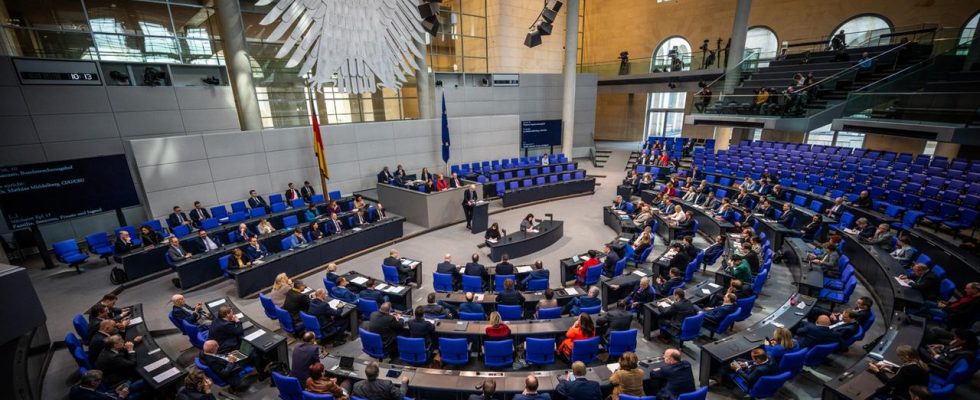Anyone who previously took advantage of their parliamentary mandate to do business on the side could not be prosecuted. The traffic light factions in the Bundestag now want to change that and are debating a draft law today.
The traffic light factions in the Bundestag want to punish bribery and corruption of members of parliament more severely. According to their own statements, they are discussing a draft law this Tuesday that would provide for up to three years in prison or a fine if parliamentarians do business by exploiting their position and mandate. A corresponding addition to the Criminal Code is planned.
So far, this only provides for penalties if members of parliament receive money or other benefits for certain behavior when exercising their mandate, for example for a speech or specific voting behavior in the Bundestag.
By tightening the law, the SPD, Greens and FDP are reacting primarily to the mask scandals of former CSU members. In the early phase of the corona pandemic, they collected millions in commissions for arranging mask deals. They could not be punished for this under the current legal situation – that should now change. The draft law is available to the DPA news agency. “Bild” and “Politico” first reported on it.
Trust in democracy should be strengthened
“Our citizens must have the trust that MPs are working for the common good and not their own wallets,” said the parliamentary director of the SPD parliamentary group, Johannes Fechner, about the tightening of the law.
His FDP colleague Stephan Thomae emphasized: “Anyone who abuses their mandate to enrich themselves must not go unpunished. In the future, this should not only apply to the direct exercise of the mandate, but also when the position as a mandate holder is outside of parliament used for one’s own profit.”
The Green Party right-wing politician Canan Bayram spoke of a “bribery paragraph” and added: “When MPs exploit their position to enrich themselves, they damage the population’s trust in the integrity of political processes and promote frustration with democracy.”

